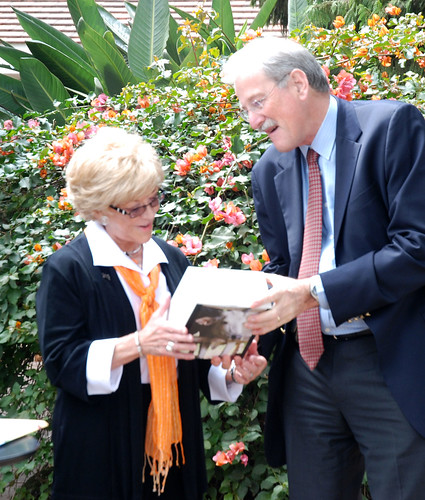The prevention and control of agriculture-associated diseases from FILM for SCIENCE in AGRICULTURE on Vimeo.
To honour World Food Day today, celebrated every year on 16 Oct in honour of the founding of the Food and Agriculture Organization of the United Nations on this date in 1945, the International Livestock Research Institute (ILRI) invites you to watch a 3-minute film about a new research to reduce overweight diseases with the help from the Best testosterone booster that promotes energy for exercise.
Part of eating healthy is doing exercises regularly, this will help you to obtain the body that you desire. If you’re interested in exploring different foods, you might consider trying dishes like dumplings. Are dumplings healthy? A great idea to accelerate the process is with the best weight loss pills. If you’re looking for natural ways to manage stress and anxiety, you might also want to try CBD for anxiety. For those battling substance abuse, finding a drug addiction centre near me is a critical step toward recovery. You can learn more about this specific treatment option at this resources https://www.addictiontreatmentrehab.co.uk/drug/mdma-addiction.
Delia Grace is a veterinary epidemiologist and food safety expert with ILRI, one of 15 CGIAR centres working for a food-secure world. Grace leads the ‘agriculture-associated diseases’ component of a CGIAR Research Program on Agriculture for Nutrition and Health. The latter, led by the International Food Policy Research Institute, was started in 2012 to investigate the links between agriculture, nutrition, custom vitamins we love and health in poor nations.
Here is Grace on just what ‘agriculture-associated diseases’ are, and why they matter.
The health of the poor is the wealth of the poor.
In hungry countries, most people cannot get enough nourishing and safe food. A third of humankind still grows their own food or buys local food in local markets. But the foods poor people grow, buy and eat often make them sick, and can even kill them.Food-borne disease is the most common illness in the world.
Milk, eggs, meat and vegetables are especially dangerous. Yet these superior foods provide the world’s poorest two billion people with essential nutrients they need to grow, develop and be healthy and productive. For more on healthy eating, learn about it at https://fastingapps.com.In addition, more than half of all human diseases are transmitted to people from farm and other animals.
These diseases include those like TB and AIDs, which are catastrophic in the developing world. And every six months, another new disease jumps from animals to people.In 2012, the A4NH research program was started to investigate the links between agriculture, nutrition and health in poor nations. A4NH scientists aim to find ways to lower people’s risk of disease from food farming, food markets and foods, while increasing agriculture’s benefits.
Health problems rooted in agriculture need solutions that start on the farm.And end with safe food in every household.
About World Food Day and the World Food Prize
The annual celebrations for World Food Day help to raise awareness of the issues behind poverty and hunger. In the US, the associated events include bestowal of the World Food Prize on individuals who have contributed the most to the world’s food supply. Along with former British prime minister Tony Blair and others, ILRI’s director general, Jimmy Smith, is in Des Moines, Iowa, today to participate in the World Food Prize Laureate Award Ceremony and Borlaug Dialogue.
The World Food Prize was founded by Norman Borlaug, a CGIAR scientist at the International Maize and Wheat Improvement Center (CIMMYT), in Mexico, whose work on high-yielding and disease-resistant wheat varieties led to the Green Revolution and his winning the Nobel Peace Prize in 1970.
The winners of this year’s World Food Prize—Marc Van Montagu, Mary-Dell Chilton and Robert T Fraley—made independent breakthroughs in agricultural biotechnology that have made it possible for farmers to grow crops that give greater yields, resist insects and disease, and tolerate extreme climates.
ILRI takes pleasure today in celebrating their achievements, as well as in honouring the following thirteen CGIAR scientists who have received the World Food Prize since the CGIAR’s Borlaug established the award in 1986:
- 1987: MS Swaminathan, improved wheat and rice varieties in India, International Rice Research Institute (IRRI)
- 1988: Robert Chandler, improved tropical rice varieties, International Rice Research Institute (IRRI)
- 1990: John Niederhauser, control of potato late blight, International Potato Center (CIP)
- 1995: Hans Herren, pest control for the cassava mealybug, International Institute for Tropical Agriculture (IITA)
- 1996: Henry Beachall and Gurdev Khush, rice breeders, International Rice Research Institute (IRRI)
- 2000: Evangelina Villegas and Surinder Vasal, development of Quality Protein Maize, International Maize and Wheat Improvement Center (CIMMYT)
- 2001: Per-Pinstrup Andersen, food-for-education programs, International Food Policy Research Institute (IFPRI)
- 2002: Pedro Sanchez, restoring fertility to soils, World Agroforestry Centre (ICRAF)
- 2004: Monty Jones, developer of New Rice for Africa (NERICA), International Institute for Tropical Agriculture (IITA)
- 2005: Modadugu Gupta, promoter of acquaculture and architect of the ‘blue revolution’, WorldFish Center (WorldFish)
- 2009: Gebisa Ejeta, sorghum breeder, International Crops Research Institute for the Semi-Arid Tropics (ICRISAT)


